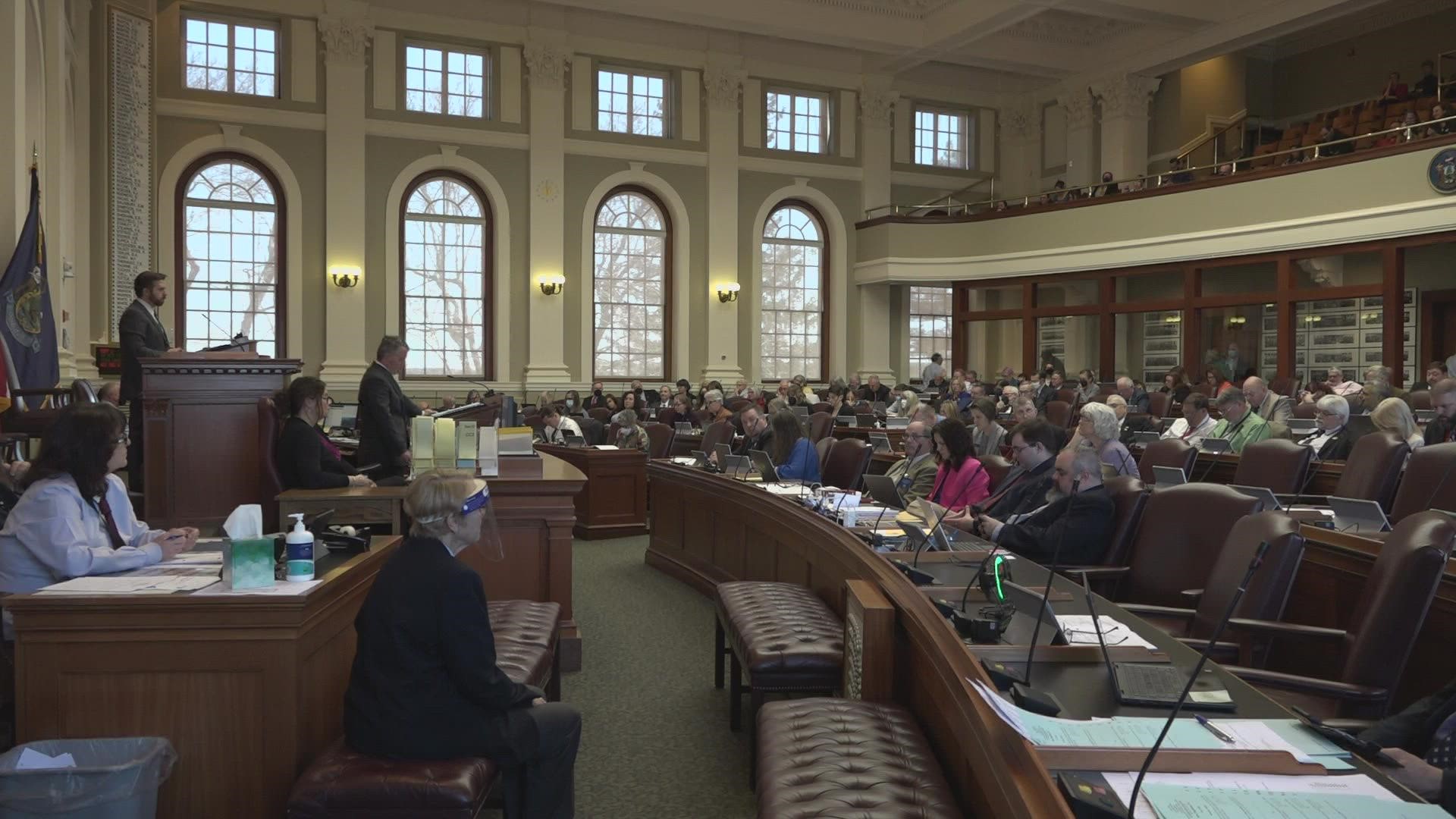AUGUSTA, Maine — The Maine Legislature is one vote away from passing a bill to change how the state addresses the opioid epidemic. If the Senate votes to enact it, the bill will head to Gov. Janet Mills’ desk for review.
On Monday, the House voted to enact LD 1862, designed to expand our state’s “Good Samaritan” law. The votes in the House came after the initial vote in the Senate that saw bipartisan support.
Maine’s current “Good Samaritan” law went into effect in 2019. It grants immunity to a person who overdoses at a scene and to the person who calls 911 for help.
That law was created to prevent further overdose deaths in Maine, but advocates for LD 1862 argued it hasn’t helped enough.
In 2021, Maine saw a record-high number of overdose deaths, with 626 lives lost. Advocates who work on the frontlines of substance use prevention say people are still afraid to call law enforcement at the scene of an overdose, and they’re hoping LD 1862 would help.
“Really, we just want people to call 911,” Courtney Allen, the organizing director for the Maine Recovery Advocacy Project, said. “We just want our friends and family members to live through that moment. It’s grounded in the reality that life is more important than anything else.”
If it became law, LD 1862 would grant immunity to everyone at the scene of an overdose. It would also make it so they couldn’t be charged with non-violent crimes, including bail and probation violations.
Mills’ administration has expressed concern about the scope of LD 1862, noting it could have unintended consequences, such as protecting a drug dealer at the scene of an overdose, for example.
As a result, the administration proposed a compromise amendment, which the Legislature’s Criminal Justice and Public Safety Committee approved, but that version ultimately was not what was voted through the Senate and the House.
Rep. Richard Pickett, R-Dixfield, favored that version of the bill. He has a decades-long history of working in law enforcement and said LD 1862 could make it more difficult for police officers to help save a person’s life at the scene, because having too many people at a location could make it more difficult for officials to get to the person overdosing. He said he’s also not optimistic LD 1862 will create much change.
“I think the [people] that are going to call are the ones that call right now,” Pickett said. “The ones that are not calling are the ones who, no matter how many times you tell them they’re going to be okay, they’re always going to have the feeling they’re not.”
On Monday, Mills’ office said she would sign the amended version of LD 1862, labeled “Ought to Pass” by the Criminal Justice and Public Safety Committee. Ultimately, though, that is not the version of the bill that the House and Senate have voted on. The Senate will likely make its final vote Tuesday.

